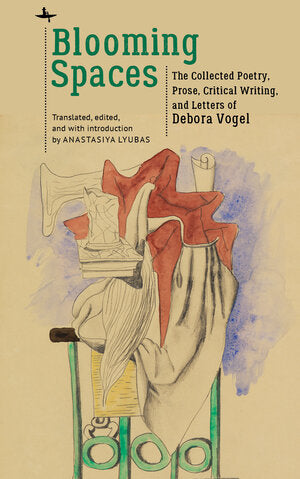Description
Debora Vogel (1900-1942) wrote in Yiddish unlike anyone else. Yiddish, her fourth language after Polish, Hebrew, and German, became the central vehicle for her modernist experiments in poetry and prose. This ground-breaking collection presents the work of a strikingly original yet overlooked author, art critic, and intellectual, and resituates Vogel as an important figure in the constellation of European modernity. Vogel’s astute observations on art, literature, and psychology in her essays, her bold prose experiments inspired by photography and film, and Cubist poetry that both challenges and captivates invite the reader on a journey of discovery—into the microcosm of the talented thinker marked by tragic fate and the macrocosm of Jewish history and Poland’s turbulent twentieth century.
“Regrettably, Vogel’s writing has until now remained virtually unknown to English-language readers. With the invaluable new collection Blooming Spaces, Anastasiya Lyubas, a researcher at the University of Toronto, at last rescues Vogel from [Bruno] Schulz’s shadow, restores the obliterated lines of continuity between her and us, and brings Vogel the attention commensurate with the full profusion of her talents. In translations that beautifully convey the cadences of the original, Lyubas gives us for the first time not only generous selections from Vogel’s three books but also her essays—many with a sharp polemical bite—on photomontage and literary montage, on abstract art, on the painter Marc Chagall (whom she knew personally), on racism and antisemitism (‘Exoticized People’), on the role of intellectuals, and on the history of secular Yiddish writing in Galicia.”
— Benjamin Balint, Jewish Review of Books
Payment & Security
Your payment information is processed securely. We do not store credit card details nor have access to your credit card information.

